#but there are still people who refuse to analyze characters they view as ’unforgivable’ like meimei or naoya
Explore tagged Tumblr posts
Note
People acting surprised when a morally grey character is actually morally grey 😲
THIS ….. i feel like a LOT of people consume media under the assumption that morally gray characters are characters who always perfectly tiptoe the line between black and white, and not…… characters who do horrible horrible things but still treat one single person with all the care in the world. or characters who are on the ’good’ side of the story and do good things while also being fully willing to cross any line they’re told to cross. and etc. morally gray characters are complex and can be anywhere on the morality spectrum except right at the very end of either side. they’re not a perfect shade of gray, they just aren’t completely black or completely white. sigh…….
#sorry anon i am very sleepy and very frustrated#:’)#i wish people were willing to dissect fictional characters more deeply#because that’s where all the fun lies!!!!!!!#jjk in particular is full of . Nothing but morally gray characters#and that makes it sm fun to pick them apart!!!#but there are still people who refuse to analyze characters they view as ’unforgivable’ like meimei or naoya#or refuse to acknowledge that their ’perfect cinnamon rolls’ (yuuta & yuji etc).. are more than capable of doing Bad Things#you know?#i just think it’s a waste of fun!!!!!#sorry i’m getting bitter again 😭 in the tags 😭😭#thank you for bearing with me anon…….#morally corrupt blorbos i will always love u#ask tag ✩
23 notes
·
View notes
Note
Shipping aside, can you analyze Zuko and Katara's relationship, as well as Zuko and Azula's vs Katara and Sokka's
Hello anon!
When it comes to Katara and Zuko’s dynamic, I would start from this scene:

This scene is where they interact for the first time not as enemies, but as people. It is meaningful that the first thing they share is about their respective mothers.
Ursa and Kya are two fundamental figures in their kids’ lives. In particular, when it comes to Katara and Zuko, they are linked to sides of them they usually hide.
On one hand Ursa is linked to a kind and empathetic side Zuko has, but does not initially show.
For Zuko (and also for Azula, but in a more complicated way) Ursa symbolizes unconditional love. Ursa is the parent who has always shown Zuko kindness and appreciation no matter what he accomplished.
Ursa being linked to a more positive side of Zuko is made clear also here:
Iroh: “You have more than one great-grandfather, Prince Zuko. Sozin was your father's grandfather. Your mother's grandfather was Avatar Roku”.
Ozai is Sozin’s descendant, while Ursa is Roku’s. Zuko is the descendant of both and must reconcile these two sides of himself.
In short, Ursa embodies a more positive side of Zuko. This is why the flashback about her is one we have when Zuko is travelling alone and is already starting to change and to show more and more of these positive traits.
When it comes to Katara, the violent death of her mother is instead linked to a ruthless unforgiving side she rarely shows:
Katara: “It's not the same! Jet attacked the innocent. This man, he's a monster.”
Katara is usually compassionate and empathetic. As Sokka says:
Sokka: “ Nah, she doesn't hate you. Katara doesn't hate anyone.”
However, when it comes to her mother’s murderer, she shows cruelty. What is more, at the root of both Katara and Zuko’s traumas reguarding their mothers there is the fact that they grow up without knowing what really happened to them.
All in all, they stay confused and without closure to the point that years later what happened to their mothers is still haunting them. What makes their parallel even stronger is that both Kya and Ursa died/disappeared to protect their children. However, the reasons why their children risked death are different.
On one hand Zuko risks to die because Ozai does not value him. In particular, Ozai sees him and his bending as weak. On the other hand Katara risks to die because she is a bender, so she might be strong enough to pose a danger for the Fire Nation.
Both children are threathened by the Fire Nation, but for opposite reasons. Zuko is targeted because of his “weakness”, while Katara for her strength and potential. This ties to the different social role they are asked to fulfill by their respective communities. On one hand Zuko is asked to be a prince and so to exhibits traits like ruthlessness and strength. On the other hand Katara’s culture (well, the culture of the North Water Tribe, at least) asks her to be a woman and not to fight.
Both Katara and Zuko exhibits traits they should not have. Katara is powerful and has taught herself how to fight, while Zuko is compassionate and does not want soldiers to be cruelly sacrificed. They end up in trouble because of this and enter into a conflict with parts of their culture just to be themselves. At the same time, theirs is also a story of getting to know their respective cultures better and this can happen also through getting to know other cultures as well.
This is made clear by how their respective bending progresses throughout their journeys.
On one hand Katara leaves a homecountry which was almost completely destroyed by the war. Many aspects of her culture, especially the ones related to her bending, went missing and her main objective at the beginning of the series is to learn more about them. Throughout her journey she succeeds. As a matter of fact in each season she discovers more and more about waterbending. In the first book she discovers its healing properties and learns a Northern style. In the second book, she discovers the swamp style of water-bending. Finally in the last book she is trained by a Southern bender and learns blood-bending. In short, throughout her journey Katara discovers her roots and accepts both positive and negative things about them.
On the other hand Zuko’s bending develops as he learns more from other cultures:

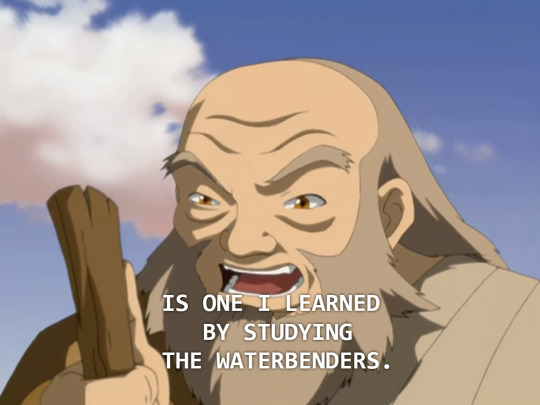
And, thanks to in his attempt to teach fire-bending to Aang, he connects with a style of fire-bending often forgotten:
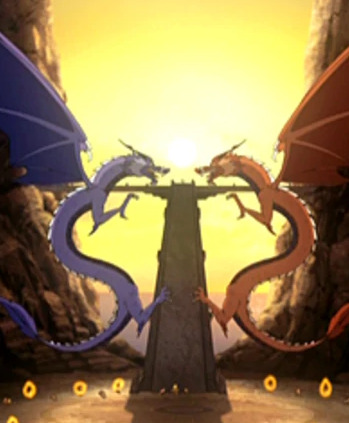
In short, Zuko is enriched by other cultures and it is through them that he also discovers more about his own.
It is also interesting that what we discover about each bending each season parallels Zuko and Katara in some way.
On one hand Zuko starts the story as an antagonist and what people say about firebending in season one is mostly negative:
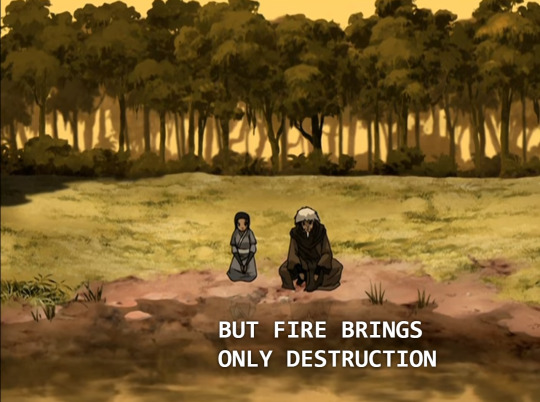
Even a firebending master recognizes how dangerous his bending is. This is what is said about waterbending instead:

Waterbending has healing qualities. Water can heal, whereas fire can only hurt. This is a good power for a character like Katara to have. As a matter of fact she is an extremely nurturing character to the point that she often acts as a mother figure even for characters who are her peers:
Sokka: “I'm gonna tell you something crazy. I never told anyone this before, but honestly? I'm not sure I can remember what my mother looked like. It really seems like my whole life, Katara's been the one looking out for me. She's always been the one that's there. And now, when I try to remember my mom, Katara's is the only face I can picture.”
However, in season three we are shown that firebending can also embody a positive philosophy:
Aang: “All this time, I thought firebending was destruction. Since I hurt Katara, I've been too afraid and hesitant. But now I know what it really is ... it's energy, and life.”
Zuko: “Yeah. It's like the Sun, [He curls his hand into a fist.] but inside of you. Do you guys realize this?”
Fire is linked to the sun and can represent life itself. After all, where would humans be without fire?
At the same time, we are shown how waterbending can be extremely dangerous:
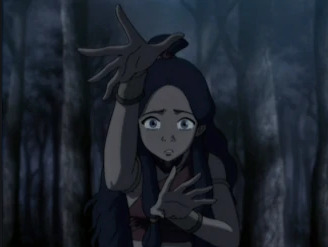
These revelations about firebending and waterbending fit with what we discover about Zuko and Katara themselves, as stated above. Zuko can be helpful and kind, while Katara can be resentful and feel deep hatred.
In short, both characters have negative and positive traits. However, they manage not to lose themselves and to find an equilibrium and this is also because of their loved ones.
This is also true for their respective cultures. All in all, all cultures have positive and negative traits and this is why it is important to acquire different points of view. This is the main theme of ATLA after all. It is not by chance that the Avatar gets to bend all elements. It is because only through knowing all kinds of people he can help maintain harmony.
Another interesting similarity between Zuko and Katara is that they foil the other’s sibling.
On one hand Zuko and Sokka are both boys who are struggling to live up to others’ expectations. Both have a father figure they wish to make proud. However, they feel they are failing.
In Zuko’s case, Ozai being proud of him is something which will never happen. This is because Ozai will never accept Zuko as a person and will fail to see his positive traits. This is why in the end Zuko realizes Ozai’s praise is not worth it. He realizes that there is already a person who is proud of him and who loves him despite it all aka Iroh.
When it comes to Sokka, Hakoda is already proud of him, but Sokka feels he is not enough if compared to his father. This is because what he mostly sees of his father is his strength as a warrior. Sokka is an average person when it comes to physical strength and battle prowess. He acquires more experience as the series progresses, but he mostly uses his intelligence and skill to solve situations. What is more, he is a normal person in a cast of people with magical power. However, Sokka slowly discovers that he can be like his father (a leader and an example) just by being himself. His strength lies in him seeing things outside the box and he does not need to lose his goofy side to be useful. At the same time, he progressively loses his toxic masculinity (just like Zuko). He starts to respect women more and learns from them, for example.
On the other hand Katara and Azula are similar in how they are both affected by their mothers’ disappearances. This despite the fact that they hide their hurt well enough. As a matter of fact it is clear pretty soon that Sokka and Zuko want to be appreciated by their fathers, but the level of pain and unsolved issues Katara and Azula have for their mothers’ disappearances is something which comes up much later.
This is because both Katara and Azula are asked by their societies to fulfills different roles. Katara is asked to become the woman of the family and she ends up mothering her older brother. Azula is instead asked to be a princess and a military leader. This makes so that they repress their issues until they come up in ugly ways:

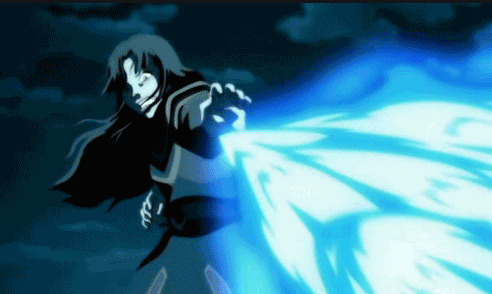
It is interesting that the moments they are at their most powerful when it comes to their bendings are also the moments where they are the most unstable psychologically wise.
That said, Katara still manages to process her feeling of grief and to find closure. It is also important that she expresses her feelings of resentment towards her brother to an extent:
Sokka: “Katara, she was my mother, too, but I think Aang might be right.”
Katara: “Then you didn't love her the way I did!”
Because of this, she is ultimately able to move on.
However, when Azula has the chance to address her feelings for her mother, she refuses to do so, as I explained here:
Azula: I don’t have sob stories like all of you. I could sit here and complain how our mom like Zuko more than me. But I don’t really care. My own mother… thought I was a monster… She was right of course, but it still hurt.
In conclusion, Katara and Zuko are pretty strong foils and they represent two sides of the conflict and two different cultures, which initially despise each other. This is pretty much made clear by them being linked with water and fire respectively. This is why their story is a story of reconciliation and forgiveness and this is made clear when one compares their respective roles in each season finale.
In the first season finale they fight each other. This is the first time they are on equal footing because Katara finally got the chance to be trained. The focus is mostly on their competitiveness and conflict.
In the second season finale, they discover they are more similar than what they think. They have similar traumas and are in similar situations. However, even if Katara is ready to give Zuko a chance, Zuko betrays her and a reconciliation does not happen.
Finally, in the third season finale, they are shown fighting together against Azula, who is a foil of both. They save each other’s lives and help to end the war.
These are my main thoughts on these two characters and their foiling.
Thank you for the ask!
114 notes
·
View notes
Text
Ryoken has been really good for Yusaku, actually
Aka what canon says
This one is going to be pretty image heavy, because its probably been a while since most people have watched these scenes and I want there to be no doubt about what was actually presented to us as the audience.
The first part of my Yusaku character analysis discussed some of the darker aspects of the voice of hope, but ever since I feel like there has been some exaggerating of those same negative aspects. I wanted to rewind and talk about Yusaku’s canon feelings for Ryoken, and how they’ve affected him, his life, and his mindset in overwhelmingly positive ways.
To Yusaku, Ryoken represents hope. Hope for a future, for salvation, for victory. And that’s all essential in the life of someone as traumatized and withdrawn as Yusaku is.
From an outside, situation-based perspective, its easy to call Yusaku’s attachment to Ryoken unhealthy, but the reality the show presents us with is quite different. There’s more to it than just the miserable scenario those feelings were born in. Because both the writing of the show and Yusaku himself make it abundantly clear that Yusaku’s feelings for Ryoken have been nothing but good for him. In season 1, despite being an overall cold, distant, and cynical person, Yusaku still has an great deal of idealism. It’s what makes him still be heroic, even when he’s a clear-cut anti-hero. But that idealism is challenged and commented on all throughout season 1, and that’s the show itself calling Yusaku out. Take Spectre pointing out that Yusaku’s decisions have put everyone else in danger, or Akira telling Yusaku that his desire to not hurt anyone is getting in the way of the bigger picture. And Yusaku accepts both those things, and has to reevaluate where he stands on each.
Yusaku’s feelings towards the special person and his faith and devotion to them are the only part of Yusaku’s idealism that comes out of the first season intact and unchallenged. And that’s likely a deliberate choice by the writers to say: Yusaku’s feelings aren’t wrong or bad. There’s not even a suggestion that they’re in a moral grey zone or whatever; even if Yusaku’s desire to not hurt people while pursuing revenge is hypocritical and representative of him not being able to commit to one or the other, his feelings for the special person are not something that should be criticized.
Ryoken is essential to Yusaku’s ability to keep on living. Yusaku doesn’t have much in his life, especially after the Tower of Hanoi and the resolution of his revenge, and he knows it. During his final duel with Revolver, in the event of his victory, Yusaku knows exactly how empty a life he’s going back to: no family, no friends, no Ai.
Ryoken gives Yusaku something to aim for beyond his revenge, the “new path” Yusaku was talking about. It’s because Yusaku wants a future with Ryoken that he can continue living even with his mission accomplished. Yusaku’s feelings for Ryoken quite literally give him a reason to keep on living.



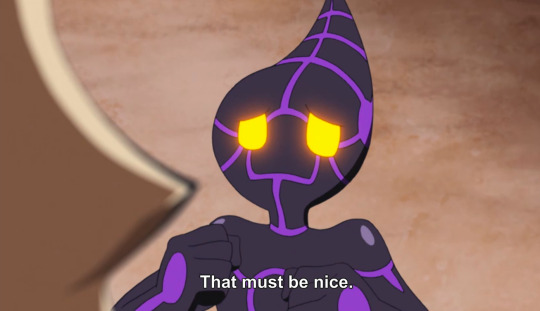

Yusaku looks to Ryoken when Ai mentions he has friends too, and then stands up saying there’s still things he wants to do. This isn’t just a matter of wanting to be friends with Ryoken and wanting to keep living: those two things are inseparably linked. If Yusaku fails they both die. Yusaku wasn’t just fighting for his own life, or the lives of everyone affected by the Tower, he was fighting specifically to save Ryoken’s life. That’s what gave him the strength to keep going, when Ai’s “stand up” mantra (mirrored by Kusanagi) had no effect.
Because of Yusaku’s unique and twisted perception of the world and the people around him, his connection to Ryoken is the “healthiest” relationship he has. It’s based on pure feelings of gratitude and appreciation, devotion, and forgiveness. We as the viewers see that Yusaku’s relationship with Kusanagi, Ai, and Takeru are also growing in and developing into something more typically supportive, but Yusaku himself never once acknowledges those relationships out loud. Kusanagi and others have brought up his bond with Yusaku a few times, but Yusaku has never and still calls Kusanagi an acquaintance. He’s seems completely incapable of recognizing those relationships, while he can talk about his connection with Ryoken quite easily in comparison.
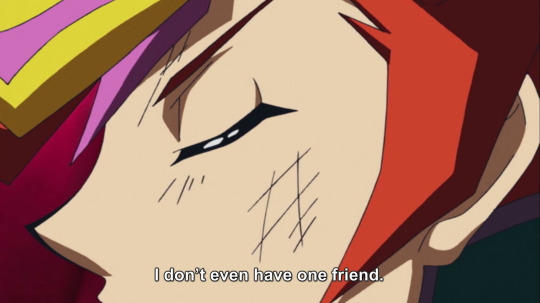

Yusaku even says that this isn’t something he wants, but rather simply something he is incapable of. And the difference between these relationships is in Yusaku’s trust and belief in the nature of each relationship; Yusaku has no doubts when it comes to Ryoken being his savior and source of strength, but he has had plenty of doubts over the course of his relationship with Ai and seemingly Kusanagi. He’s distinctly uncomfortable and agitated in Kusanagi’s presence at first, as shown by recent epsidoes, but completely relaxed and open with Ryoken the moment he realizes Ryoken is his special person. That’s because Yusaku believes that Ryoken can and will save him, while he has no such expectations for anyone else.

Without these feelings, Yusaku would be a much angrier, sadder person (which is saying something considering his current personality). It’s because of his feelings for Ryoken, the one who saved him, that Yusaku is able to save and have compassion for others. Those feelings preserved the humanity that might have otherwise been stripped away by the Incident entirely.
Ryoken’s very existence makes Yusaku a gentler, kinder person. That doesn’t mean he ignores Ryoken’s crimes; Yusaku has done more to stop Ryoken from hurting others than anyone else, knowingly or not, and he will continue to do so. But Yusaku is loyal to Ryoken in his own way. He would go to hell and back for his special person, but its a very different loyalty than that of the Knights of Hanoi and Spectre. The Knights of Hanoi know what Kogami is making Ryoken do is wrong, but their loyalty is to Kogami first. They must destroy the Ignis as he ordered before they can stop Ryoken from doing something unforgivable.

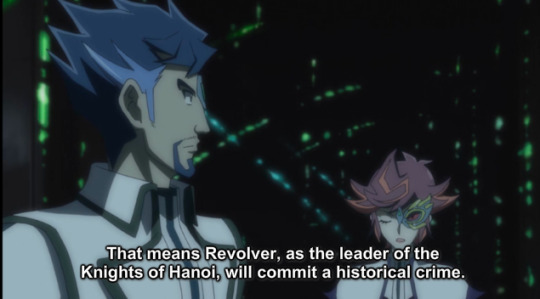

Spectre, meanwhile, is blindly loyal to Ryoken, fully prepared to die just because Ryoken said so, without once considering that Ryoken might actually try to die with him. Its unclear if this merely didn’t occur to Spectre, or if he merely accepted the Ryoken’s orders, suicidal or not, were final.
None of that shit is good for Ryoken. All four of them only serve to pave the path to Ryoken’s self-destruction. And its Yusaku who cares about Ryoken enough to stand in the way and actually save Ryoken’s life.

I think the best descriptor of Yusaku’s feelings towards Ryoken would be “pure”. I love the foe yay dynamic these two have, but reducing Yusaku’s devotion to just the dark situation in which it developed isn’t fair to the nuanced perspective the show builds. It’s not like Yusaku’s feelings for Ryoken are blind; it seems he’s actually spent a good portion of the past ten years and especially the past three months analyzing them. Yusaku holds Ryoken accountable for his kidnapping. Yusaku genuinely believes Ryoken righted that wrong by reaching out to him and eventually releasing him.
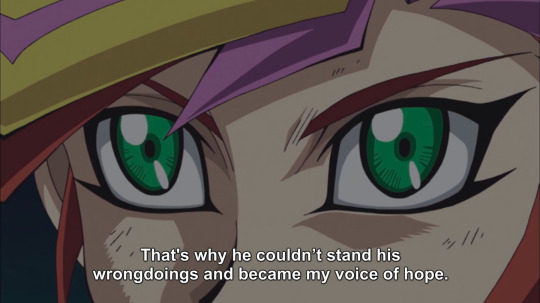
Ryoken never says anything along these lines, besides that the screams messed with his head, but Yusaku at some point came to the conclusion that Ryoken must have felt guilty. (And I have no doubt that Yusaku is spot on here; Yusaku is actively and correctly analyzing who Ryoken really is as a person, not just going off of an image he built in his head of his special person.) Yusaku has weighed Ryoken’s rights and wrongs and consciously dissected his own feelings. Even after that, there’s not the slightest doubt on his face when he talks about Ryoken, when he uses his experiences with Ryoken to affirm his very humanity.
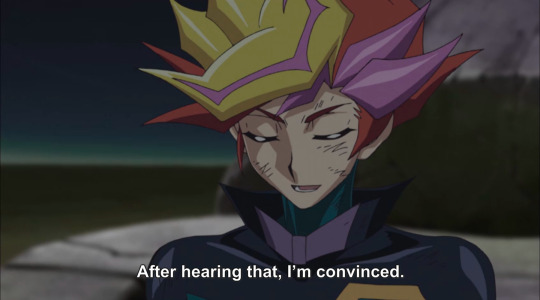
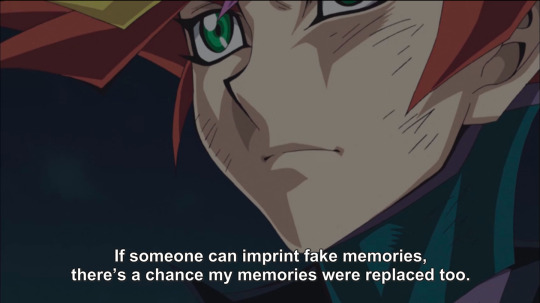


Yusaku refuses to believe that his history and connection with Ryoken can be anything but real.
I think in the end, what’s abundantly clear is that Yusaku views Ryoken as a positive influence in his life. Yusaku doesn’t just have a whole bunch of mushy, positive emotions to Ryoken, but he also views those emotions in a positive way. Ryoken makes Yusaku feel stronger, more hopeful, and like he can also be vulnerable.


It reminds me of the philosophy that love is a choice: Yusaku chooses to believe in Ryoken. Chooses to believe in the boy that saved his life and his heart, the boy that gave him strength, hope, and comfort when he had none. It’s a conscious and mature decision. And personally, I think that’s really damn romantic.
114 notes
·
View notes